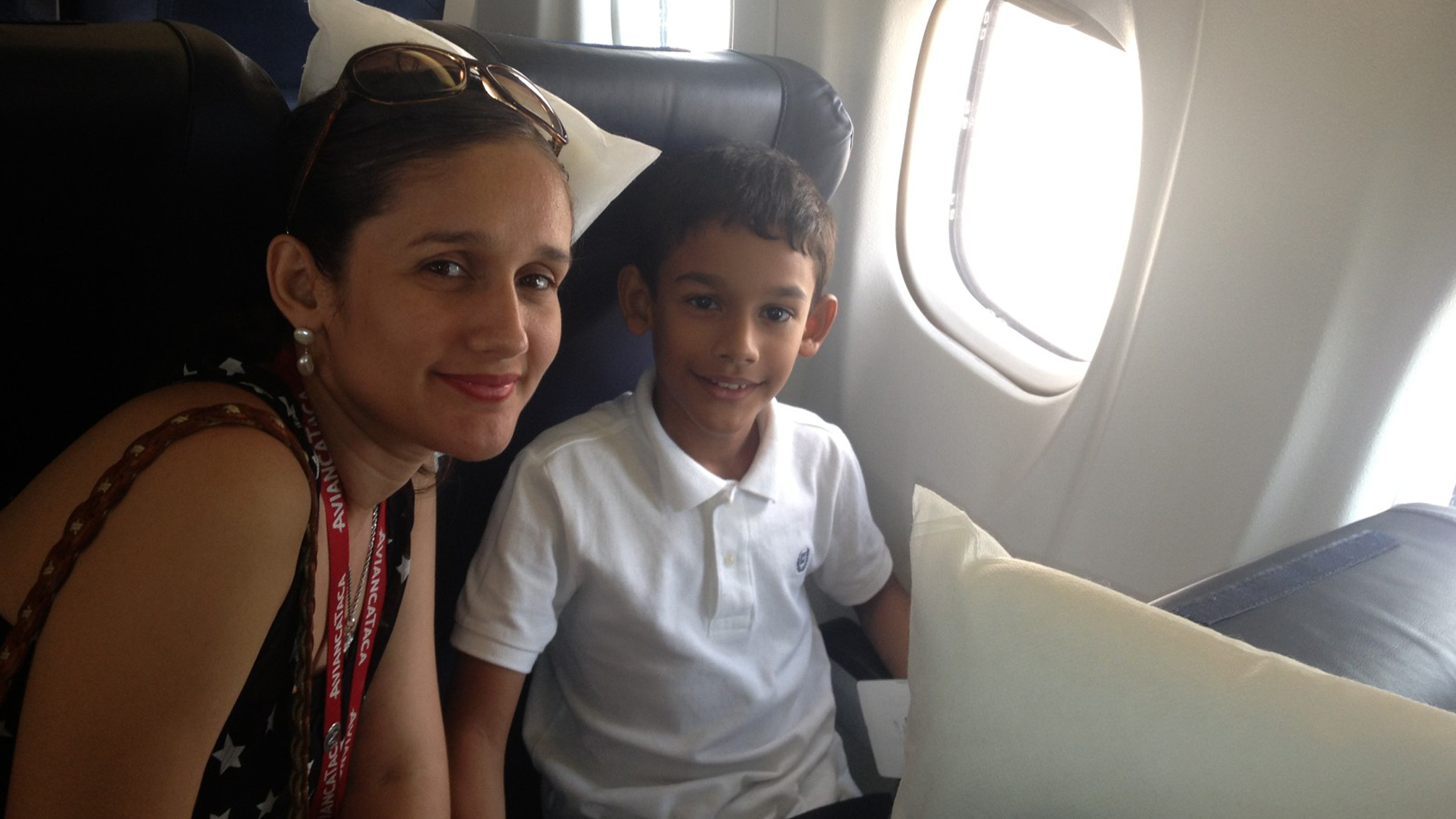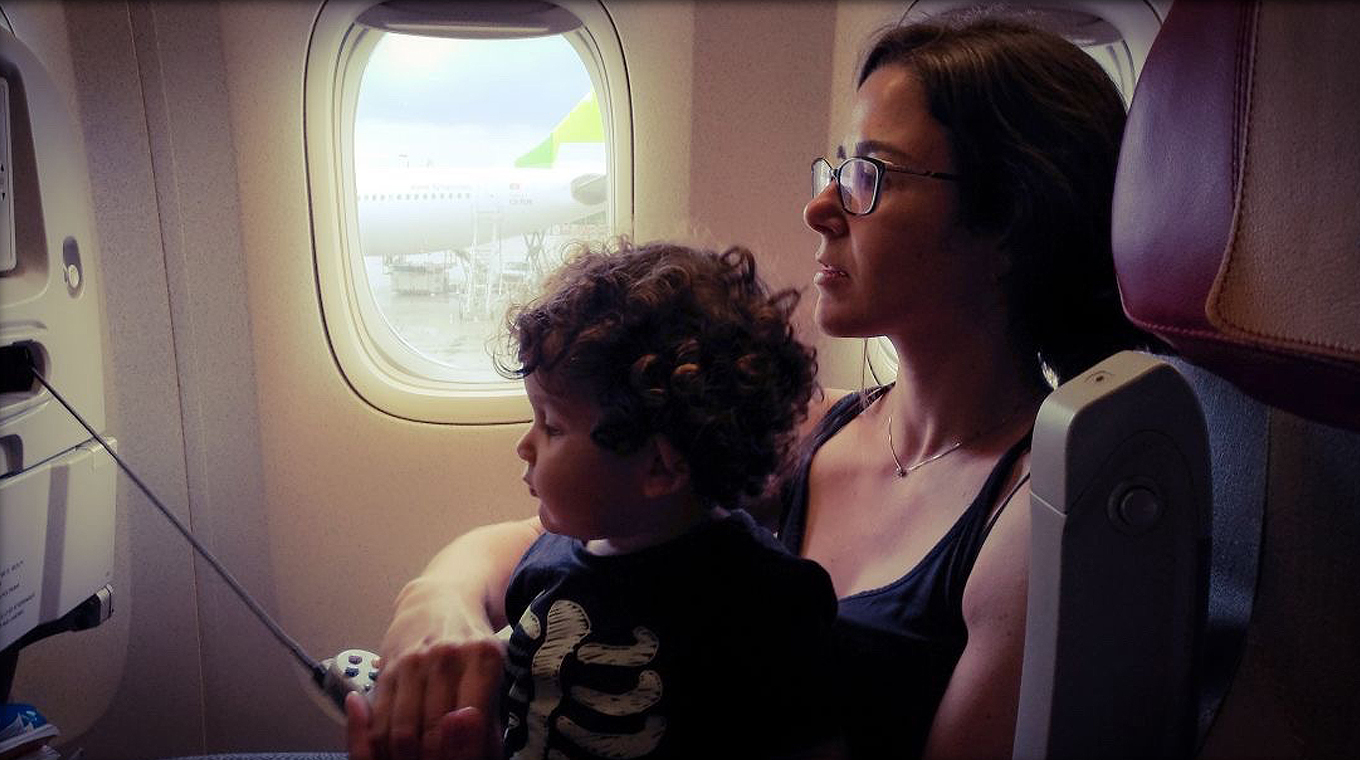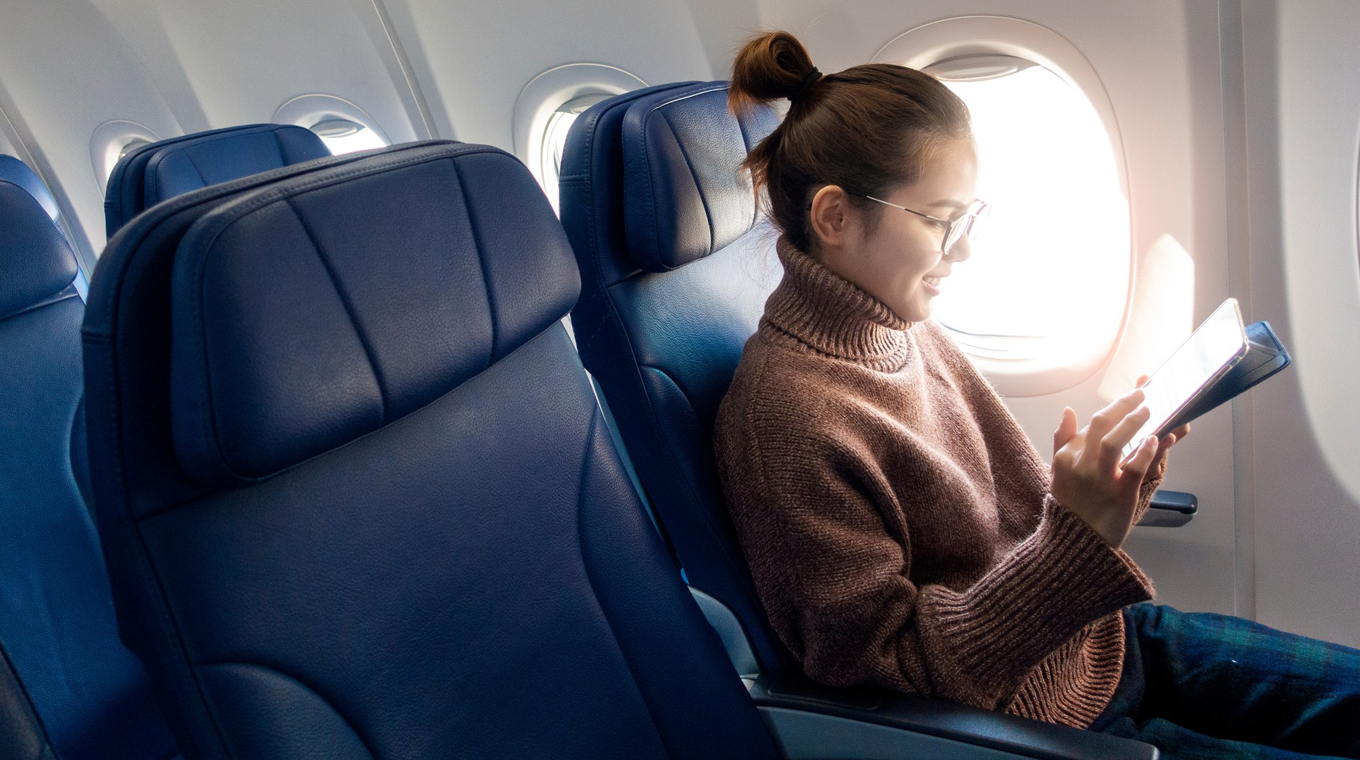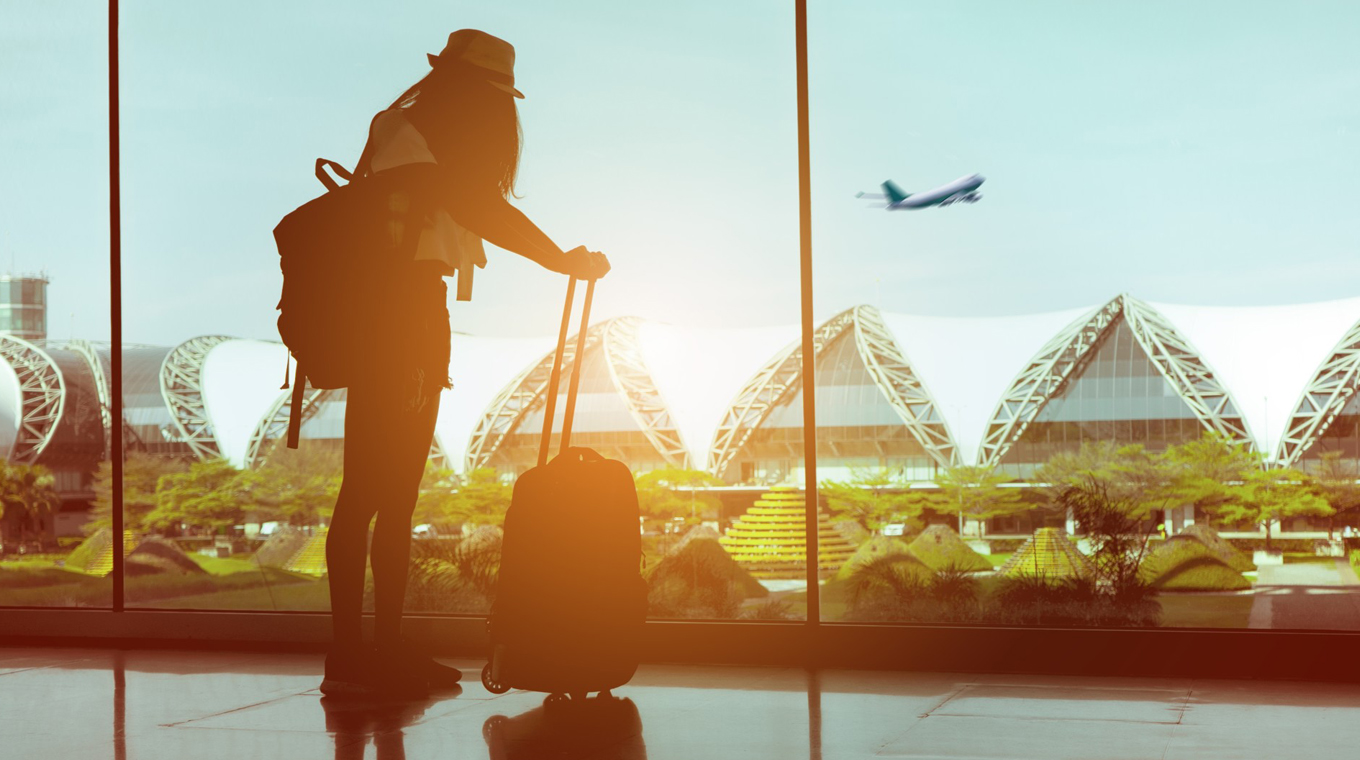
In this article
Self-isolation during the coronavirus crisis is enough to make anyone want to get on a plane and take a vacation somewhere, anywhere. Well, maybe that's just me after a couple of days at home with my teenage son and nowhere to go. Most of us won't be making any vacation plans until the coronavirus threat is mitigated, yet there are those who may need to travel for a variety of reasons. Here's what you need to know before you fly.
How the coronavirus can spread on a plane

1) Know where the germs are coming from
The coronavirus is spread when somebody coughs or sneezes and the infected droplets are spread onto people or surfaces around them. This means that the virus is not spread from the circulated oxygen in the airplane, but is instead transmitted as people touch seats, overhead bins, bathroom doors, and other parts of the plane. Those sitting within one row of someone infected with the coronavirus are more likely to be infected.
Flight tips for you and your family

2) Clean, then clean some more
Using disinfectant wipes on all of the hard surfaces that you may touch around your seat, including the armrest or tray tables, will help reduce the potential of you coming in contact with the coronavirus particles. There are also seat and tray table covers you can purchase that are washable and reusable to keep your own seat germ-free.
If you are packing disinfectant wipes for the airplane, plan on only using them on hard surfaces. The disinfecting properties must remain wet on the surface for anywhere from 30 seconds to four minutes (depending on the product) to be effective. Do not use disinfectant wipes on the fabric of the seats. This will only get the seats wet, creating a different problem.
3) Keep those hands off
Avoid touching your face, particularly your eyes, nose, or mouth, where infective particles can survive in your mucus or saliva.
4) Keep those hands clean
Of course, washing your hands for at least 20 seconds with soap and water helps to kill and prevent the spread of the coronavirus. However, you may not want to venture to the bathroom while on your flight. The less you move around the cabin, the less likely you are to directly encounter anyone with the coronavirus. This is one of those times that hand sanitizer would be ideal.
5) Choose your seat wisely
You may not have a lot of choices on where you can sit on long, commercial airline flights. If you do have a choice, the best place to sit is a window seat away from where most people have regular contact. The window seat provides the least opportunity for you to come in contact with someone exposed to the coronavirus. Of course, this only holds true if you are not within a row of the infected person.
Consider the movement of passengers during the flight. Howard Weiss, a professor of biology and mathematics at Penn State University, gave the example of someone who is infected by someone walking in the aisle. “We’re going to be in close contact, meaning will be within a meter. So if I'm infected, I could transmit to you,” he told National Geographic. This means everyone needs to be prepared to protect themselves when on an airplane.
6) Keep your distance
I’d also reconsider any contact with the flight attendant who theoretically could be in contact with everyone on the flight. Bring your own snacks and buy a bottle of water after you make it through TSA. In this case, it’s worth the $8.
What not to do

7) Don't bother with a mask
TSA will allow you to wear a medical face mask while on the airplane. While the mask can help those who are infected from spreading the coronavirus, it is not effective to protect against becoming infected. Many of these masks don’t fit people properly. Additionally, many of the masks purchased in stores do not prevent small particles from going through the mask. Masks may also become a collection area for infected particles and increase the chances of a person getting infected with the coronavirus.
8) Maybe just don't go
Avoid travel if you can until the coronavirus threat has subsided. This may cause a little inconvenience and some sad faces, but remember — these are practices that can help prevent the spread of the flu and any other infectious disease.
Blanca Villareal, a Los Angeles mom of two, was asked if she would be comfortable getting on a flight right now. "Nope! I was supposed to fly out last night. Was holding on for hope that things would change. Finally cancelled my flight Monday night," she told Mom.com. "I just don’t feel safe if I were to carry it back to someone elderly like my mom who has respiratory issues."
She continued, "My other problem I would foresee is that I would be stuck in Puerto Rico. Some friends are stuck in El Salvador and can’t get a flight back for 2-4 weeks."
Be safe and consider if your vacation will be worth getting exposed and/or exposing others — there'll be plenty of time for wanderlust once this crisis has passed.







